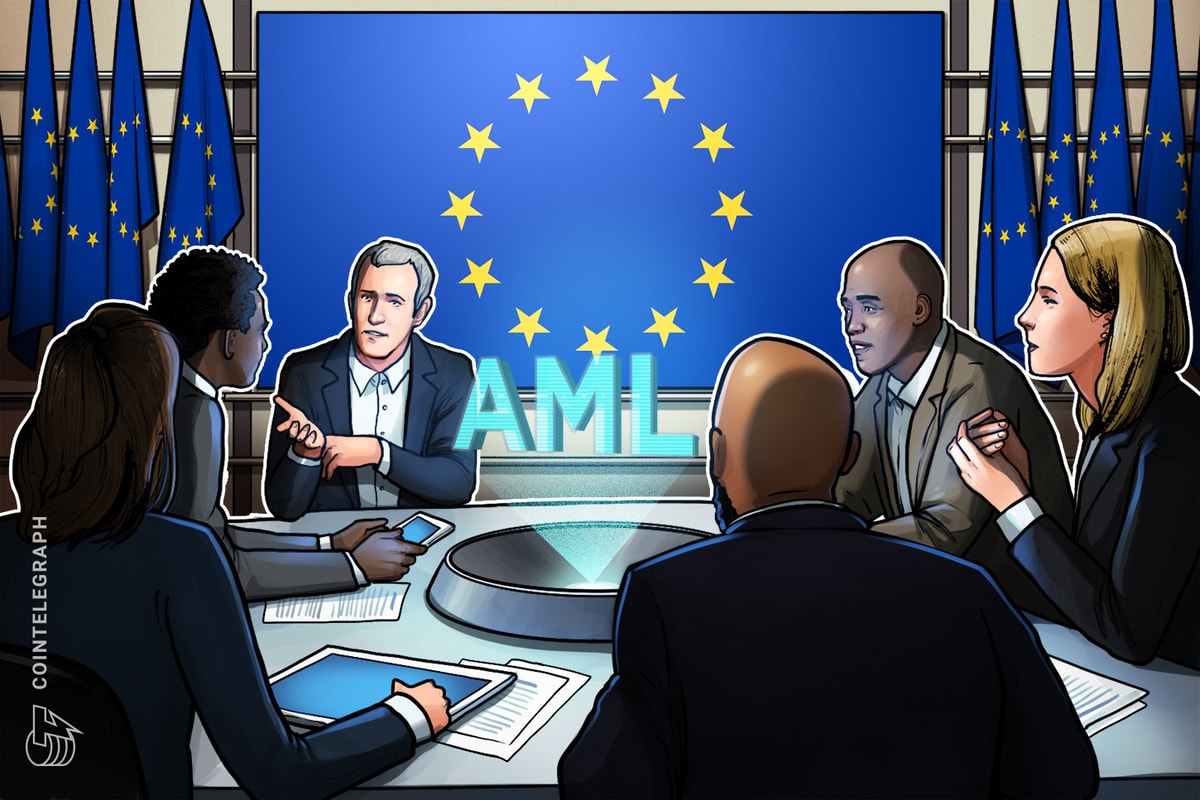
The European Union’s financial regulatory landscape is in flux with the introduction of multiple Anti-Money Laundering (AML) directives and related laws. These regulations, although designed to protect the financial system, come at a hidden, and sometimes steep, cost to consumers and financial institutions alike. It’s imperative to understand their wider implications, and to question whether the costs — both monetary and ethical — are simply too high.
To name just a few, the AML Directive 5, MiCa and the Transfer of Funds Regulation have reshaped the European financial framework. These laws mandate a rigorous monitoring system. However, the depth and breadth of these regulations are unparalleled in their scope. One cannot help but wonder if such comprehensive oversight is truly sustainable in the long run Banks, crypto asset managers, and even sports clubs now face complex due diligence processes, requiring them to verify customer identities, assets, and transaction patterns. With the Financial Action Task Force (FATF) Travel Rule and equivalents of the Foreign Corrupt Practices Act in play, data collection, sharing, and monitoring become increasingly invasive. This begs the question: to what extent should the quest for security compromise the sanctity of personal data?
For many, this extensive scrutiny spells the end of financial privacy. While it’s undeniably crucial to deter criminal activities, these measures have begun encroaching upon personal freedoms. This isn’t just a minor inconvenience; it signifies a broader shift in the social contract of trust and transparency between citizens and institutions. Consider, for instance, the public accessibility mandate for beneficial owners of corporate entities. Suddenly, individuals and businesses lose control over their financial confidentiality, an unsettling consequence for a region that prides itself on individual rights and privacy. Such drastic changes necessitate a rigorous debate on the ethical implications involved.
Related: How will CBDCs be used for political oppression in your country?
The unforeseen costs of these regulations are burdensome. Financial institutions bear the brunt of technology upgrades, intensive man-hour investments and processes that have been revamped. This not only hampers their agility in a fast-evolving market but also deters potential new entrants from contributing to the financial ecosystem. Unfortunately, these overheads don’t vanish into thin air. They trickle down, affecting consumers in the form of higher fees and limited financial product offerings. In essence, the common man pays a tangible price for these regulatory shifts. Such economic ramifications must be weighed against the purported benefits of these regulations.
(1/2) At the annual @osce_odihr #WarsawHDC, our @KSzczypska highlighted to foreign diplomats and representatives of international institutions the #financialexclusion resulting from the abuse of Anti-Money Laundering & Counter Financing Terrorism (#AML/CFT) rules, which has… pic.twitter.com/l96HFHEtvR
— Open Dialogue Foundation / Fundacja Otwarty Dialog (@ODFoundation) October 12, 2023
What’s even more concerning is that despite these hefty regulations, monumental regulatory failures persist. Big names like HSBC, Danske Bank, and FTX have been associated with regulatory controversies. It’s distressing to observe that even with such stringent rules, large-scale oversights still occur. The juxtaposition of strict regulations with glaring lapses presents a paradox that warrants thorough introspection. It poses a daunting challenge: if these behemoths, with their vast resources, falter, what hope do smaller entities have in navigating this regulatory maze? This naturally leads to skepticism. Are these regulations genuinely effective, or are they mere symbolic gestures, inconveniencing businesses and consumers alike without ensuring the intended foolproof security?
Related: Worldcoin is making reality look a lot like Black Mirror
Europe’s intentions are undoubtedly noble. In a world of increasing cyber threats and financial crimes, protective measures are essential. Yet, the path to safety shouldn’t undermine the values we hold dear. With every stride towards security, we must be cautious not to tread upon the tenets of personal liberty. But it’s equally crucial to ensure that these protective walls don’t become stifling cages. A fine balance must be struck between security and freedom, costs and benefits. As Europe pioneers this journey, it has the responsibility of crafting a model that other regions can emulate without reservations.
Europe’s evolving financial regulatory framework requires a closer examination. Not just from a legal or economic perspective, but from an ethical standpoint. The choices made today will shape the future of finance in the region, setting precedents that could reverberate globally. Personal privacy is a cherished right, and it’s imperative that it doesn’t become an inadvertent casualty in the quest for financial security. The ultimate challenge lies in harmonizing these conflicting demands, creating a landscape where safety doesn’t overshadow freedom. Only by achieving this equilibrium can Europe truly champion a regulatory model that stands the test of time.
George Basiladze is the co-founder and CEO of Wert, a fintech company dedicated to creating products that expand fiat payment access to crypto. He previously co-founded Cryptopay, a Bitcoin wallet. Before fintech, he held analyst roles at companies including NordWest Energy and Evli Bank PLC, accumulating years of experience in the financial and tech sectors. He graduated from the University of Exeter and the Higher School of Economics. Based in Estonia, he has consulted for firms navigating European AML regulations. (Disclaimer: George has direct involvement with fintech companies that could be influenced by European AML regulations.)
This article is for general information purposes and is not intended to be and should not be taken as legal or investment advice. The views, thoughts, and opinions expressed here are the author’s alone and do not necessarily reflect or represent the views and opinions of Cointelegraph.
- SEO Powered Content & PR Distribution. Get Amplified Today.
- PlatoData.Network Vertical Generative Ai. Empower Yourself. Access Here.
- PlatoAiStream. Web3 Intelligence. Knowledge Amplified. Access Here.
- PlatoESG. Carbon, CleanTech, Energy, Environment, Solar, Waste Management. Access Here.
- PlatoHealth. Biotech and Clinical Trials Intelligence. Access Here.
- Source: https://cointelegraph.com/news/europe-aml-regulations-high-cost-privacy
- :has
- :is
- :not
- :where
- 12
- 15%
- 7
- a
- abuse
- access
- accessibility
- achieving
- Act
- Action
- activities
- advice
- affecting
- against
- AIR
- alike
- alone
- also
- Although
- AML
- AML Regulations
- an
- analyst
- and
- annual
- anti-money laundering
- ARE
- article
- AS
- asset
- asset-managers
- Assets
- associated
- At
- Balance
- Bank
- Banks
- based
- BE
- Bear
- become
- been
- before
- begun
- Behemoths
- beneficial
- benefits
- between
- Big
- Bitcoin
- Bitcoin Wallet
- Black
- both
- breadth
- broader
- businesses
- but
- by
- cages
- CAN
- cannot
- cautious
- CBDCs
- ceo
- challenge
- champion
- Changes
- choices
- Citizens
- closer
- clubs
- Co-founder
- Cointelegraph
- collection
- come
- Common
- Companies
- company
- complex
- comprehensive
- compromise
- concerning
- confidentiality
- Conflicting
- Consider
- Consumers
- contract
- contributing
- control
- Corporate
- Cost
- Costs
- could
- Counter
- country
- Creating
- Crimes
- Criminal
- crucial
- crypto
- crypto asset
- customer
- cyber
- danske
- data
- debate
- dedicated
- demands
- depth
- designed
- Despite
- dialog
- dialogue
- diligence
- diplomats
- direct
- do
- doesn
- don
- down
- due
- Economic
- Economics
- ecosystem
- Effective
- end
- energy
- ensure
- ensuring
- entities
- entrants
- equally
- Equilibrium
- equivalents
- essence
- essential
- estonia
- ethical
- Europa
- Europe
- European
- Even
- Every
- evolving
- Expand
- experience
- expressed
- extensive
- Face
- falter
- FATF
- Fees
- few
- Fiat
- finance
- financial
- financial crimes
- Financial institutions
- financial privacy
- financial security
- financial system
- financing
- financing terrorism
- fine
- fintech
- Fintech Companies
- FINTECH COMPANY
- firms
- FLUX
- For
- Force
- foreign
- form
- Foundation
- Framework
- Freedom
- freedoms
- from
- FTX
- funds
- future
- General
- George
- Globally
- Have
- he
- Held
- help
- here
- Hidden
- High
- higher
- Highlighted
- hold
- hope
- However
- HSBC
- HTTPS
- identities
- if
- imperative
- implications
- in
- Including
- increasing
- increasingly
- individual
- individuals
- influenced
- information
- instance
- institutions
- intended
- intentions
- International
- into
- Introduction
- invasive
- investment
- Investments
- involved
- involvement
- isn
- IT
- itself
- journey
- jpg
- just
- landscape
- large-scale
- Laundering
- Laws
- Leads
- Legal
- Liberty
- lies
- like
- Limited
- Long
- Look
- lose
- Lot
- made
- Making
- man
- Managers
- mandate
- many
- Market
- measures
- mere
- minor
- model
- Monetary
- monitoring
- monumental
- more
- multiple
- must
- name
- names
- navigating
- necessarily
- New
- Noble
- now
- observe
- of
- Offerings
- on
- ONE
- only
- open
- Opinions
- or
- Other
- otherwise
- our
- over
- Oversight
- owners
- Paradox
- path
- patterns
- payment
- pays
- personal
- personal data
- perspective
- pioneers
- plato
- Plato Data Intelligence
- PlatoData
- Play
- PLC
- political
- poses
- potential
- practices
- presents
- previously
- price
- privacy
- processes
- Product
- Products
- protect
- Protective
- public
- purposes
- quest
- question
- ramifications
- Reality
- reflect
- region
- regions
- Regulation
- regulations
- regulatory
- regulatory landscape
- related
- represent
- Representatives
- requires
- Resources
- responsibility
- resulting
- revamped
- right
- rights
- rigorous
- roles
- rules
- Run
- s
- Safety
- School
- scope
- scrutiny
- Sectors
- security
- setting
- Shape
- sharing
- shift
- Shifts
- should
- signifies
- simply
- Skepticism
- smaller
- Social
- social contract
- sometimes
- Sports
- standpoint
- stands
- Still
- Strict
- stride
- stringent
- such
- sustainable
- symbolic
- system
- taken
- tangible
- Task
- task force
- tech
- Technology
- tenets
- Terrorism
- test
- that
- The
- The Future
- their
- Them
- These
- they
- thin air
- this
- threats
- time
- to
- today
- too
- towards
- transaction
- transfer
- Transparency
- travel
- tread
- truly
- Trust
- ultimate
- undeniably
- Undermine
- understand
- undoubtedly
- unforeseen
- unfortunately
- university
- unparalleled
- upgrades
- upon
- used
- Values
- Vast
- verify
- views
- Wallet
- Warrants
- we
- What
- whether
- which
- while
- wider
- will
- with
- without
- wonder
- world
- years
- yet
- Your
- zephyrnet













